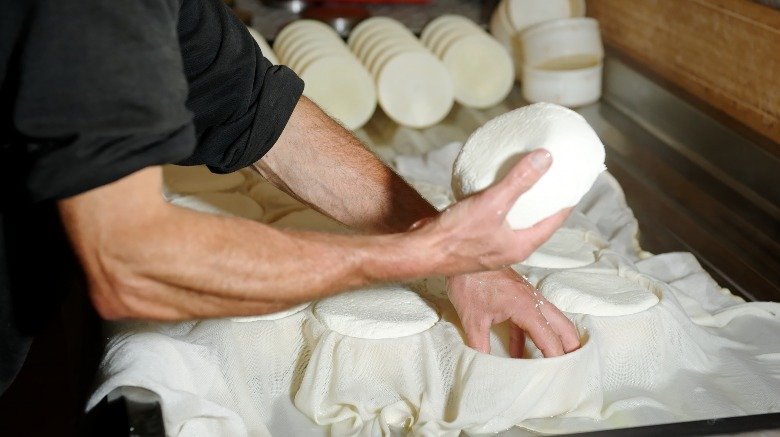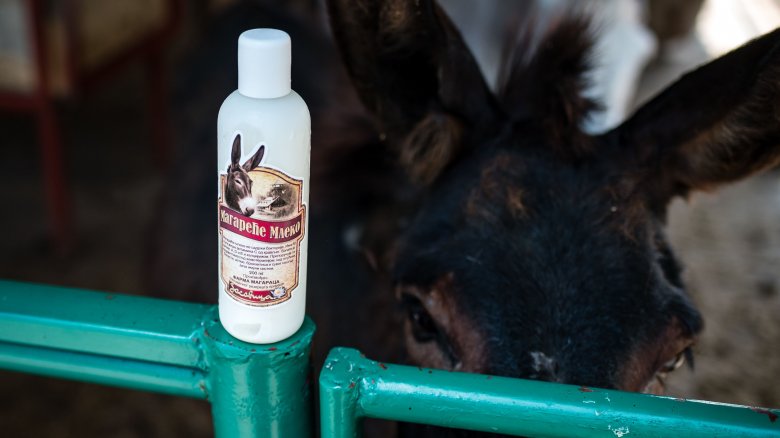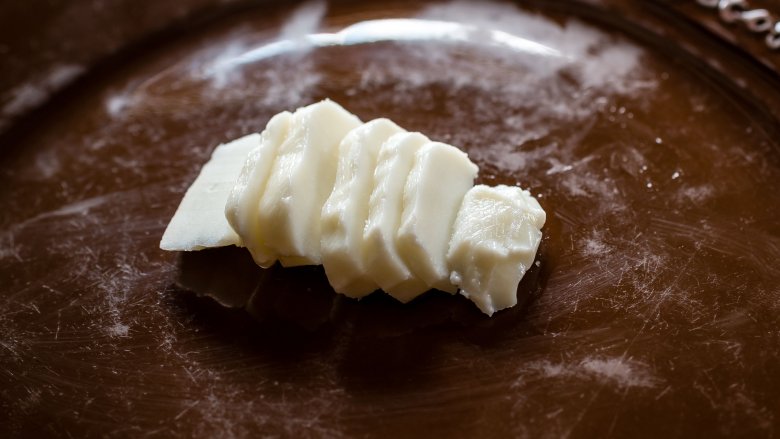This Is The Most Expensive Cheese In The World
When it comes to cheese, what would be the fanciest, most exclusive kind you can think of? Would it perhaps be an elegant French Brie, or an Emmentaler imported from Switzerland, or perhaps an Italian burrata? How about a special limited edition British Stilton which contains actual gold? No, not even this last-named delight tops the list of world's most expensive cheeses — in fact, at about $400 per pound, it is still quite a bargain compared to a type of cheese made from donkeys' milk. Yep, this means actual milk from long-eared, hee-hawing donkeys in Serbia, a country better known for its visionary inventors and talented tennis players than its cheese-making. The name of this super-cheese that ranks amongst the planet's most valuable foods? Pule. The cost? $600 to $1,000 per pound. The odds of you ever getting to try it? Slim to none.
What makes pule cheese so expensive?
Scarcity. That's the one and only reason that pule cheese is so spendy. This cheese is only made from the milk of the endangered Balkan donkey, and only in one location, the Zasavica Special Nature Reserve, and by only by one cheesemaker, a man named Slobodan Simic. What's more, only 20 of these donkeys are producing milk at any given time, each one needing to be milked by hand instead of by machine, and it takes 25 liters of milk to produce just one kilogram of cheese. Needless to say, there's never going to be too much of this cheese available at any given time, and it's currently only available by special order.
Is pule cheese for real?
While there's a long list of foodies who'd just love to get the bragging rights that come with having sampled one of the world's rarest cheeses, it seems few have actually managed to do so. In fact, it was even rumored that the entire global stock of pule cheese was bought out by Serbian tennis star Novak Djokovic, although he has since denied this.
There are some folks, including French donkey farmer Jean-Francois Wanbeke, quoted in Modern Farmer, who've expressed doubts that pule cheese is even possible to produce. Donkeys' milk is very low in casein, the substance needed in order for cheese to thicken into curd. While Simic claims to have a secret process to circumvent this lack of casein, Wanbeke remains skeptical, citing his own efforts to produce a similar cheese that ended in failure.
While you may never really know whether pule cheese is the real deal, or even real, period, you can, however, easily try a much cheaper, similar-tasting cheese. According to those in the know (friends of Djokovic?), pule tastes quite a bit like the Spanish sheep's milk cheese manchego. This cheese, we're pleased to inform you, is readily available at fine retailers such as Walmart, where it should set you back no more than $12 per pound.


